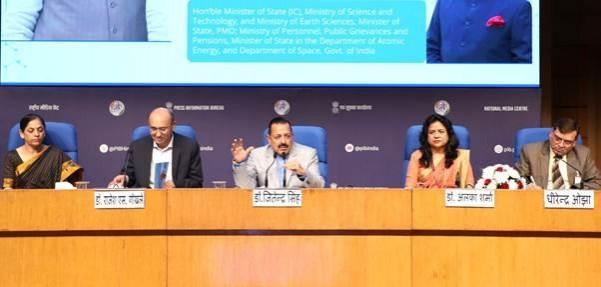
Union Minister of State (Independent Charge) for Earth Sciences, Dr. Jitendra Singh, has launched Kisan Kavach, an innovative anti-pesticide bodysuit. This innovation, a first of its kind, is designed to protect farmers from the detrimental effects of pesticide exposure. Developed by BRIC-inStem, Bengaluru, in collaboration with Sepio Health, the bodysuit offers protection against pesticide-induced toxicity. Prolonged exposure to pesticides can lead to severe health complications, including breathing disorders, vision loss, and in extreme cases, death.
The introduction of Kisan Kavach is a transformative step towards ensuring farmer safety. The bodysuit, which is washable, reusable, and can last up to a year, employs advanced fabric technology to deactivate harmful pesticides upon contact. The manufacturing process, as detailed in the journal Nature Communications, involves the covalent attachment of a nucleophile on cotton fabric, which is stitched as "Kisan Kavach". The fabric can deactivate pesticides upon contact through nucleophilic-mediated hydrolysis, thereby preventing pesticide-induced toxicity and lethality.
Dr. Singh emphasized that Kisan Kavach is not just a product but a promise to our farmers to safeguard their health as they continue to feed the nation. He also lauded the efforts of the Department of Biotechnology (DBT) and BRIC-inStem for spearheading the project and delivering a society-centric innovation.

The minister also highlighted the growth of biotech startups in India, which has surged to over 8,500 in the last decade, putting the country on track to achieve a $300 billion bio-economy. With initiatives like Kisan Kavach, India is not only safeguarding its farmers but also advancing towards climate-resilient agriculture and sustainable development.
While the bodysuit is currently priced at Rs 4,000, Dr. Singh assured that as production scales up, the suit's affordability will increase, making it accessible to more farmers nationwide. He further stated that this transformative technology not only addresses an urgent need but also showcases India's capability to innovate for its people.
Historically, the issue of pesticide exposure and its harmful effects on farmers has been a significant concern worldwide. In the 1980s, the Bhopal gas tragedy in India, one of the world's worst industrial disasters, highlighted the devastating impact of toxic chemical exposure. The incident led to a renewed focus on safety measures and protective equipment for those working with hazardous substances. The launch of Kisan Kavach is a continuation of these efforts, specifically tailored to the needs of farmers.

















